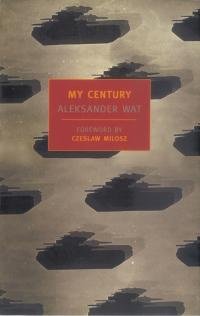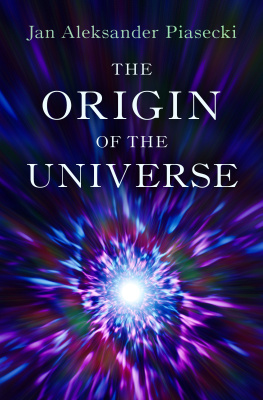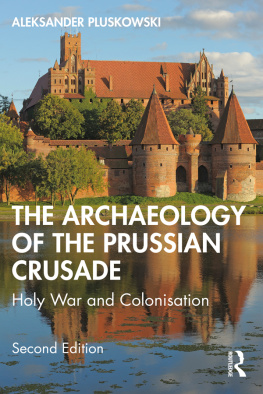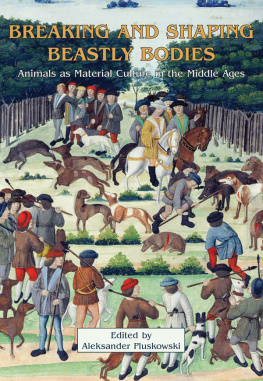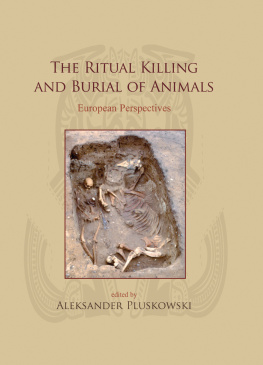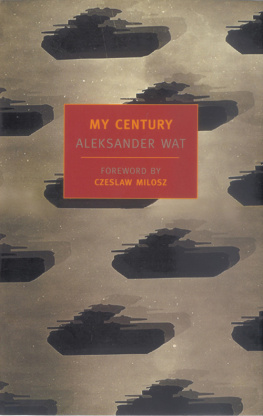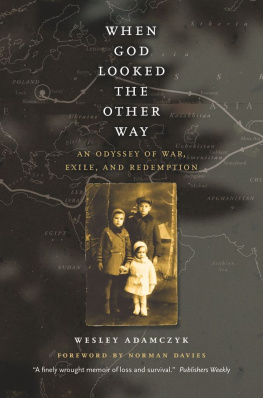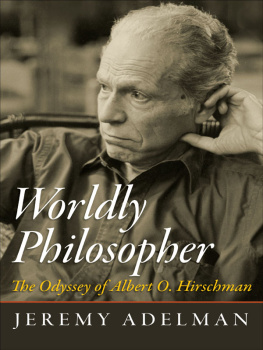Aleksander Vat - My century: the odyssey of a Polish intellectual
Here you can read online Aleksander Vat - My century: the odyssey of a Polish intellectual full text of the book (entire story) in english for free. Download pdf and epub, get meaning, cover and reviews about this ebook. year: 2013, publisher: New York Review Books, genre: Non-fiction. Description of the work, (preface) as well as reviews are available. Best literature library LitArk.com created for fans of good reading and offers a wide selection of genres:
Romance novel
Science fiction
Adventure
Detective
Science
History
Home and family
Prose
Art
Politics
Computer
Non-fiction
Religion
Business
Children
Humor
Choose a favorite category and find really read worthwhile books. Enjoy immersion in the world of imagination, feel the emotions of the characters or learn something new for yourself, make an fascinating discovery.
- Book:My century: the odyssey of a Polish intellectual
- Author:
- Publisher:New York Review Books
- Genre:
- Year:2013
- ISBN:978-1-59017-542-2
- Rating:4 / 5
- Favourites:Add to favourites
- Your mark:
- 80
- 1
- 2
- 3
- 4
- 5
My century: the odyssey of a Polish intellectual: summary, description and annotation
We offer to read an annotation, description, summary or preface (depends on what the author of the book "My century: the odyssey of a Polish intellectual" wrote himself). If you haven't found the necessary information about the book — write in the comments, we will try to find it.
My century: the odyssey of a Polish intellectual — read online for free the complete book (whole text) full work
Below is the text of the book, divided by pages. System saving the place of the last page read, allows you to conveniently read the book "My century: the odyssey of a Polish intellectual" online for free, without having to search again every time where you left off. Put a bookmark, and you can go to the page where you finished reading at any time.
Font size:
Interval:
Bookmark:
ALEKSANDER WAT (19001967), the nom de plume of Aleksander Chwat, was born in Warsaw, the descendant of an old and distinguished Jewish family which counted among its members the great sixteenth-century cabalist Isaac Luria. He attended Warsaw University, where he studied philosophy, psychology, and logic, and formed strong ties with the literary avant-garde, publishing a first book of poems, Me from One Side and Me from the Other Side of My Pug Iron Stove, in 1920 and, some years later, a collection of stories entitled Lucifer Unemployed. Wat edited a variety of influential journals and helped to disseminate the work of Mayakovsky and the futurists in Poland, before forming an allegiance with the Communist Party and confining his writing to journalism. In 1939 he fled east before the advancing German army and was separated from his wife and young son. The family reunited in Lww, then under Soviet control, where Wat found work on a newspaper, only to be placed under arrest. Imprisoned in the Soviet Union for the better part of two years, during which time he converted from Judaism to Christianity, Wat again rejoined his family, who had been exiled to Kazakhstan, in 1942. They returned after the war to Poland, where Wat began to write poetry again while serving as editor of the state publishing house. In 1963, he left his native country for France. Wat was invited in 1964 to the University of California, Berkeley, where he taped a series of conversations about his life and times with his countryman the poet Czeslaw Milosz. Edited by Milosz, these were published posthumously as My Century.
CZESLAW MILOSZ was born in Lithuania in 1911. Over the course of his long and prolific career he has published works in many genres, including criticism (The Captive Mind), fiction (The Issa Valley), memoir (Native Realm), and poetry (most recently New and Collected Poems, 19312001). He is a member of the American Academy and Institute of Arts and Letters and was awarded the Nobel Prize for Literature in 1980.
This is a New York Review Book
Published by The New York Review of Books
435 Hudson Street, New York, NY 10014
Copyright 1977 by Paulina Wat and Andrzej Wat
Translation copyright 1988 by Richard Lourie
All rights reserved.
My Century is an abridgement and translation of the work that was published in Polish as Mj Wiek by Book Fund Ltd., London, 1977
Cover illustration: Aleksandr Rodchenko's endpaper design for Red Army, 1939/Rodchenko & Stepanova Archives
Cover design: Katy Homans
The Library of Congress has cataloged the earlier printing as follows:
Wat, Aleksander.
[Mj wiek. English]
My century: the odyssey of a Polish intellectual / Aleksander Wat; foreword by Czeslaw Milosz; [edited and] translated by Richard Lourie.
p.cm.(New York Review Books classics)
Translation originally published: Berkeley: University of California
Press, c 1988.
Includes bibliographical references and index.
ISBN 1-59017-065-2 (alk. paper)
1. Wat, Aleksander. 2. Poets, Polish20th centuryBiography.
I. Lourie, Richard, 1940II. Title. III. Series.
PG7158.W282A3613 2003
891.8'517dc22
2003023592
ebook ISBN: 978-1-59017-542-2
v1.0
For a complete list of books in the NYRB Classics series, visit www.nyrb.com or write to:
Catalog Requests, NYRB, 435 Hudson Street, New York, NY 10014
MY CENTURY
THE ODYSSEY OF A POLISH INTELLECTUAL
ALEKSANDER WAT
Edited and translated from the Polish by
RICHARD LOURIE
Foreword by
CZESLAW MILOSZ
NEW YORK REVIEW BOOKS
New York
JAPANESE ARCHERY
1.
The hand tells the bowstring:
Obey me.
The bowstring answers the hand:
Draw Valiantly.
The bowstring tells the arrow:
O arrow, fly.
The arrow answers the bowstring:
Speed my flight.
The arrow tells the target:
Be my light.
The target answers the arrow:
Love me.
2.
The target tells arrow, bowstring, hand and eye:
Ta twam asi.
Which means in a sacred tongue:
I am Thou.
3.
(Footnote of a Christian:
O Mother of God,
watch over the target, the bow, the arrow
and the archer).
ALEKSANDER WAT
Translated by Richard Lourie
CONTENTS
Biographical Notes
Map
Title
Chronology
Foreword, by Czeslaw Milosz
Introduction, by Richard Lourie
MY CENTURY
1. The Early Twenties. Structure of Polish Society. Futurism. Jan Hempel. Wadysaw Broniewski. Bruno Jasieski.
2. The Problems of Autobiography. The GGA Manifesto and Antipoetry.
3. Demonism and Exorcism. The Literary Monthly. Fraternit Ou La Mort.
4. Going Over To Communism.
5. Mayakovsky in Warsaw. Paul Eluard. A Theatrical Montage for the National Exhibition in Pozna. Berlin in 1928.
6. Paris in 1928. Jan Hempel. Power Struggles in the Soviet Union. Witkacys Novels. Poland After Pisudskis Coup.
7. Witkacy. The Soviet Embassy. Mayakovsky.
8. Russia. Communism. Patriotism.
9. The Literary Monthly: Articles and Attacks.
10 . The Literary Monthly. Isaac Deutscher. First Arrest. Politics and Bedroom Farce.
11. Central Prison. Broniewski the Egotist. Contact with the Working Class as Editor and Cell Mate.
12. Communists in Prison: Workers and Future Statesmen. Release From Prison. Hitler Takes Power. Fascism Or Communism.
13. The Thirties. Lightning Bolts From Russia. Splits in the Party. Anti-Semitism.
14. Disbanding of the Polish Party. The Essence of Stalinism. Gebethners Publishing House. Death of My Mother. Omens.
15. War. Flight To Lww. The Red Army. A New Writers Union. The Red Banner. Self-criticism.
16. Lww. Wanda Wasilewska. Broniewski. Soviet Writers. Signs That I Will Be Arrested.
17. Lww. Articles for the Red Banner. Digression on Mongolia As a Peoples Republic. My Jewishness. Provocation and Arrest.
18. Count Bielski. My Cell in Zamarstynw Prison.
19. Religion in Prison. tre and Paratre. Literature in Prison. Social Bonds. Poles and Ukrainians.
20. A New Spiritual Leader in the Cell. Charisma and Hierarchy. Inner Life in Prison. An Informer. The Punishment Cell. Broniewski As Hero.
21. Kiev in Autumn. Transit Prison in Kiev. Children in Prison. Graffiti. To Moscow by Train.
22. In Lubyanka. Dunayevsky and Other Cell Mates. The Iron Barrier. Polish Catholicism. Soviet Law. Jews.
23. Reading Proust in Lubyanka. Machiavelli and Stalin. Rinventer Le Pote.
24. Dunayevskys Thoughts About Russia. A High NKVD Official. Dunayevskys Story; Or, The Abyss. The Flow of Time in Prison.
25. The Weight of Words. The Research Office at Lubyanka. Intellectual Snobbery and Family Egoism. Einsteins Theory and Prayer.
26. Platos Republic. Time and St. Augustine. Early Spring in Moscow and Music.
27. Bach and Nature. A Visit To Erfurt. Dunayevskys Mania. The Mongolian Doctor. Questioned by a High Party Official. The Writing Cubicle. The Germans Invade Yugoslavia.
28. New Cell Mates. The Ezhov Terror. A Former Polish Intelligence Agent. Taitz. Beria. Kirsanov. Gog and Magog.
29. Evacuation. With Broniewski Again. A Four-Day Train Ride. The Careers of Univermag Directors. Saratov. Steklov. Erlich. The First Urks.
30. Cell Mates in Saratov. The Professor. The Georgian. Germans. A Digression on Bedbugs.
31. The Heretical Monk. Soldiers. A Digression on the Erotic and Personal Life. The Devil Appears. Conversion. On Judaism and Christianity. Hunger and Sickness. A Meeting.
32. Tell People in Poland How Old Steklov Died. In the Hospital. A Second True Human BeingDubin. Leaving Prison.
Next pageFont size:
Interval:
Bookmark:
Similar books «My century: the odyssey of a Polish intellectual»
Look at similar books to My century: the odyssey of a Polish intellectual. We have selected literature similar in name and meaning in the hope of providing readers with more options to find new, interesting, not yet read works.
Discussion, reviews of the book My century: the odyssey of a Polish intellectual and just readers' own opinions. Leave your comments, write what you think about the work, its meaning or the main characters. Specify what exactly you liked and what you didn't like, and why you think so.

